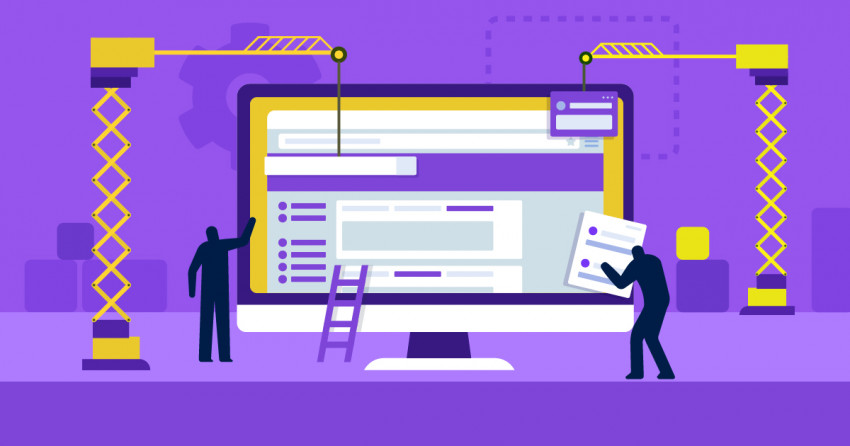Inside this Article
Question #1: What’s Your Budget and What are You Willing to Spend it On?Question #2: What’s Your Website’s Focus?Question #3: Do You Need E-Commerce Capabilities?Question #4: What Features Do You Need?Question #5: Do You Want to Use Custom Code on Your Website?Question #6: Are There Any Free Options, and Will One Work for You?Question #7: Is the Website Builder Scalable?The Final Question: Are You Ready to Build Your Website?
Question #1: What’s Your Budget and What are You Willing to Spend it On?
Depending on the builder you choose, there might be plenty of other costs associated with hosting on that platform. A good strategy would be to narrow down your search with the following questions in this article, and then see which builder provides the features you want or satisfies your requirements. If you don’t carefully consider your budget, you might start using a builder without being able to purchase all the features you need. For example, some builders provide some (or all) of their templates for free. Both Shopify and BigCommerce have a limited set of free themes and a much larger collection of premium themes that cost upwards of $150. WordPress is unique in that it offers all themes for free with a Professional or Business plan, while Wix provides all its themes for free from the get-go. Most platforms also rely on some kind of app or plugin market to provide more features. Depending on the platform, some of the features you need will be built in; on other platforms, you’ll need to make a purchase via an app.Question #2: What’s Your Website’s Focus?
Different website builders have different areas of focus that will also play a role in which features they provide and what the quality of those features are. For example, some platforms, like WordPress and Squarespace, focus on blogging. Others, like Shopify, BigCommerce, and Volusion, focus on e-commerce. Wix, on the other hand, provides a well-rounded service that you can tailor to your needs. Different builders might also provide better features or templates for different niches. For example, Squarespace has a heavy focus on the fashion and lifestyle niche. And even though e-commerce platforms might be more expensive, their blogging tools aren’t as great as those of blogging-specific platforms. The reverse is also true. So take a moment to ask yourself what type of website you want and make sure you pick a builder that’s strong in that field.Question #3: Do You Need E-Commerce Capabilities?
 The most significant distinction between types of website builders are those meant for online stores or e-commerce websites, and those that aren’t. Providing a platform for e-commerce is much more complex than for normal website hosting. Online stores tend to need more resources and have greater security requirements, and their customers need specialized technical support.
Therefore, e-commerce platforms like Shopify and BigCommerce are usually more expensive than their non-e-commerce-oriented counterparts. However, they also provide greater e-commerce-specific features. For example, Shopify boasts powerful point-of-sales (POS) integrations and APIs with third-party drop-shipping tools. E-commerce platforms also usually offer the best rates; support the most payment gateways; and have the best e-commerce templates, product management tools, and analytics tools.
You can check out our expert reviews for Shopify here, and for BigCommerce here.
The most significant distinction between types of website builders are those meant for online stores or e-commerce websites, and those that aren’t. Providing a platform for e-commerce is much more complex than for normal website hosting. Online stores tend to need more resources and have greater security requirements, and their customers need specialized technical support.
Therefore, e-commerce platforms like Shopify and BigCommerce are usually more expensive than their non-e-commerce-oriented counterparts. However, they also provide greater e-commerce-specific features. For example, Shopify boasts powerful point-of-sales (POS) integrations and APIs with third-party drop-shipping tools. E-commerce platforms also usually offer the best rates; support the most payment gateways; and have the best e-commerce templates, product management tools, and analytics tools.
You can check out our expert reviews for Shopify here, and for BigCommerce here.

Short on time?
Take this one-minute quiz to learn which website builders are best for your project.
Question #4: What Features Do You Need?
Although it’s a biggie, e-commerce is just one of the feature sets you need to look at when choosing a website builder. If you’re a blogger, for example, it might be important that you have access to the best-in-class SEO tools. For this, BigCommerce, WordPress.com, and Wix are some of the best, while Shopify lags a bit behind. Read our expert reviews to learn more about SEO tools and other features in WordPress here, and Wix here. You can also look at their individual app markets for the range of apps available and how highly they’re rated. Apps might be your only way to add features that aren’t built-in, so it’s important to pick a platform with a big library of apps that are regularly updated. Other examples of important features are integrations with other platforms, like social media such as Facebook and Instagram; an email manager; a drag-and-drop webpage builder; specific blogging tools; performance-enhancing features; live chat; advanced image or video galleries; and more. Ask yourself what features you need before you start building your website.Question #5: Do You Want to Use Custom Code on Your Website?
 If you’re thinking that this isn’t a factor for you because you can’t code, think again. Today, there’s a thriving industry of website developers and designers who specialize in building and maintaining apps for specific website builders. If you have the budget to pay for these services or the skills to do it yourself, there are two reasons why you’d want to do this:
If you’re thinking that this isn’t a factor for you because you can’t code, think again. Today, there’s a thriving industry of website developers and designers who specialize in building and maintaining apps for specific website builders. If you have the budget to pay for these services or the skills to do it yourself, there are two reasons why you’d want to do this:- To implement unique features not available in apps
- To create a completely unique website design
Question #6: Are There Any Free Options, and Will One Work for You?
If you’re not ready to commit any kind of budget toward your new website, or you simply don’t have the budget, you might be wondering if there are any completely free options. The good news is that there are a number of free builders; the bad news is that they come with some heavy restrictions. Wix, WordPress.com, and Jimdo are some examples of website builders with completely free plans. However, they all have the following restrictions:- Your website will be hosted on a subdomain (e.g., yoursite.com or wix.yoursite.com)
- Ad space on your webpages will be used by the website builder and you won’t be able to monetize ads on your own
- Your website may display a mandatory banner (e.g., “Made with WordPress” or “Made with Wix”)
- You’ll have very limited access to resources and features (e.g., only Business users are allowed to install plugins on WordPress.com, and only certain Wix plans support e-commerce)
Question #7: Is the Website Builder Scalable?
There are a number of factors that affect the scalability of a website builder:- How much storage you can use
- Monthly data transfer limits
- How many visitors you can have
- Limits on the number of sales, or the total amount of sales, you can make
- How many products/categories/pages you can have
- How many staff accounts you can have










![8 Best E-Commerce Platforms for Startups [2024 Update]](https://dt2sdf0db8zob.cloudfront.net/wp-content/uploads/2020/09/1.jpg)




